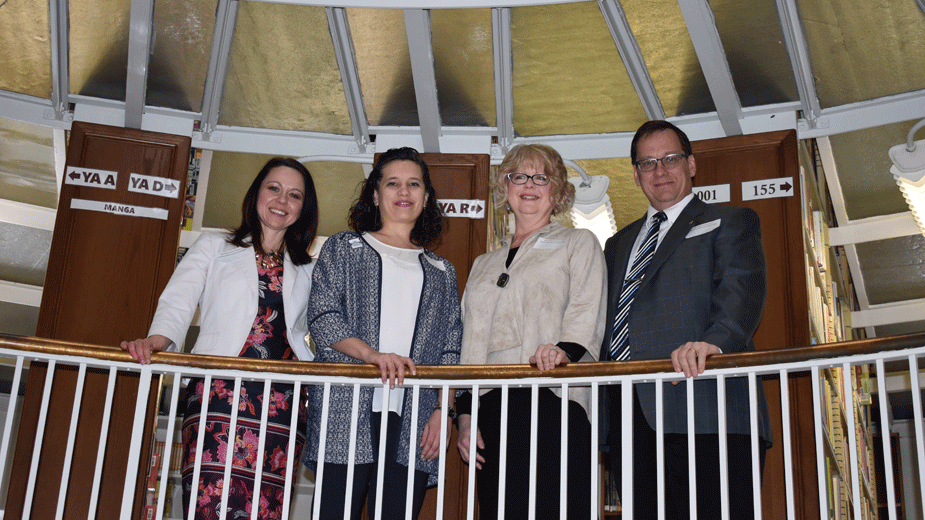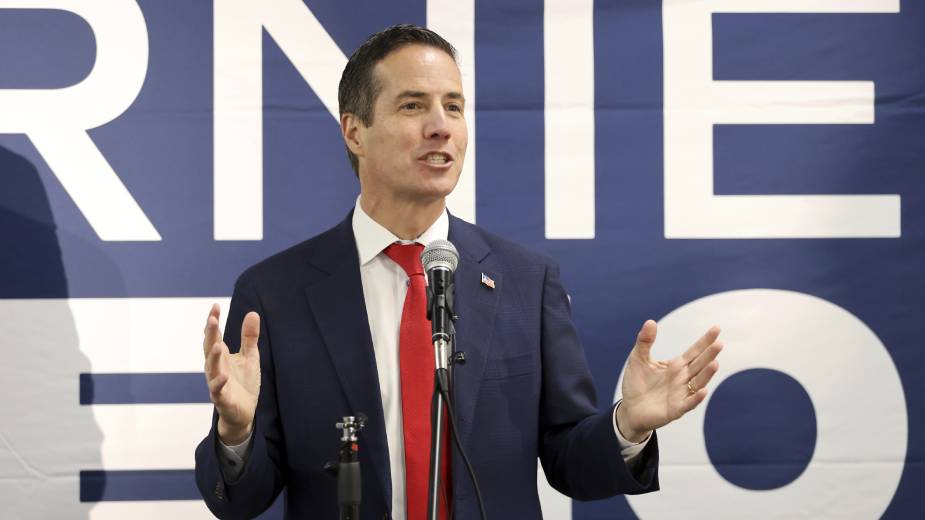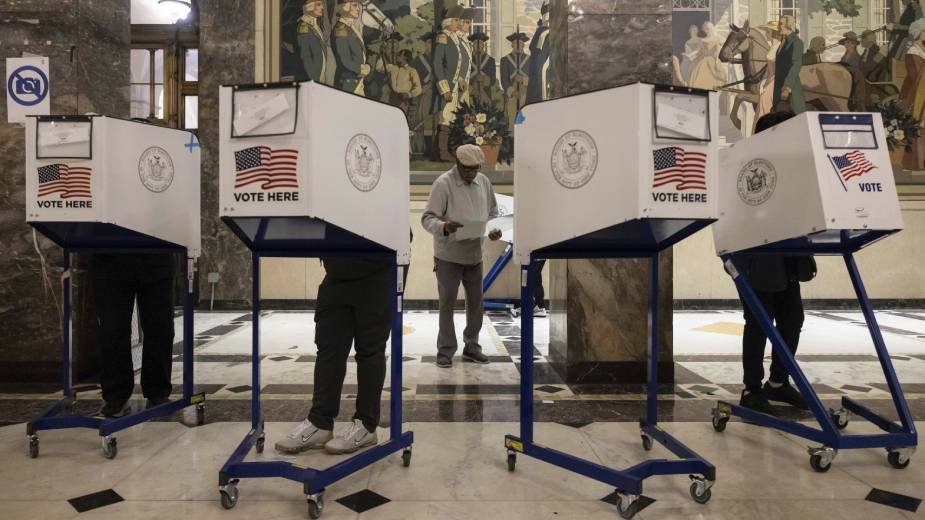Libraries Make Case to Preserve Funding levels
NILES, Ohio – Legislators need to be aware of the role Ohio libraries play in their communities and what impact a proposed cut in the state’s Public Library Fund would mean, the executive director of the Northeast Ohio Regional Library System said this morning.
Library representatives and state lawmakers gathered in the auditorium of the McKinley Memorial Library here for a legislative breakfast to discuss the reduction Gov. John Kasich has proposed to the Public Library Fund, from 1.7% of the current state budget to 1.66%.
“It impacts some libraries more than others but it is detrimental to all of the libraries in Ohio and therefore to all of the residents of Ohio,” said Betsy Lantz, executive director of the regional library system.
The purpose of the breakfast was to ensure state legislators are “fully informed” about the services that libraries provide and the importance of the library fund to their work, she noted.
Libraries have traditionally been repositories of human knowledge, but viewing them “solely as book collections is extremely old-fashioned, very limiting and, dare I say it, its own brand of illiteracy,” Lantz remarked.
She praised libraries as “masters of early adoption of technology,” from automating their own systems to recognizing the need to provide computers for personal, employment and student use. She recalled writing her master’s thesis in art history on a computer at a library in New Lexington in the early 1980s, when few people owned personal computers.
Lantz outlined the various roles libraries throughout northeastern Ohio are playing in using and promoting use of technology, from the Salem Public Library’s STEM an STEAM programs for children and teens to the Hubbard Public Library and the Public Library of Youngstown & Mahoning County being “at the forefront” of applying new technology to maker spaces.
The Youngstown/Mahoning County system’s executive director, Heidi Daniel, who serves as this area’s legislative network representative to the council, expressed appreciation that Kasich recognized libraries as a “critical resource” in his budget blueprint but lamented the proposed cut. In his budget, the governor envisions libraries as “continuous learning centers,” she pointed out.
“It’s hard for us to develop meaningful and impactful programing if we don’t have stable and solid funding,” Daniel said. “Certainly, we’re not asking for a large influx of money, but not being cut seems like an important piece of keeping those continuous learning programs going.”
In addition, she acknowledged, encouraging greater use of libraries means more demand on staff, equipment and resources such as online databases. “That has a cost,” she said.
Daniel pointed to libraries’ return on investment and the role they play in economic development. According to a calculation by the state library council, for every $1 spent $5 comes back to the local community.
“Every day somebody comes into our library and applies for a job. Every day we have people come in and look for grant money. We have stories of people starting their businesses out of libraries,” she said. “We are an economic engine. We are an economic driver.”
The Public Library Fund allocation accounts for slightly less than half of Youngstown/Mahoning County’s budget, but for other systems it represents a higher share, she said. For 58 libraries, in fact, it represents nearly all of their funding.
Among those libraries primarily dependent on state funding is the Wellsville Carnegie Public Library in Wellsville. Last year it received about $375,000 from the state, said Tracee Murphy, director. The library opens at 10 a.m. six days a week and remains open until 8 p.m. two days, closing at 6 p.m. the remaining days.
“My greatest concern is that we won’t be able to operate at the level that we are now,” Murphy said. “I don’t know what other funds we would be able to get.” Both hours and services likely would see cuts if funding is reduced.
The Niles library gets about 65% of its funding from the state fund, said Michelle Alleman, director. If the proposed cut comes about, the library would have to reassess the programs it could offer, what technology it would be able to replace and what outreach it would be able to do at schools and other locations, she said.
“It is frustrating that on one hand that the governor is recognizing all of the hard work that we do to assist our communities but at the same time, he’s proposing a cut in our budget,” Alleman said.
State lawmakers attending the event said they are sympathetic to the libraries’ plight and support at least keeping the funding at the current 1.7% level. State Rep. John Patterson, D-99 Ashtabula, who serves on the House Finance Committee, reported that he directed his staff yesterday to draft an amendment to restore the library fund to its 1.7% level.
“We need help on the other side of the aisle to get this into the budget,” he remarked.
Senate Minority Leader Joe Schiavoni, D-33 Boardman, shared how the library helps him when he needs something to do with his young sons. He talked about how a book they borrowed about people sharing a pizza helped get the importance of sharing across to the boys.
Schiavoni was critical of Kasich’s budget proposal, which includes $3.1 billion in income tax cuts and $2.8 billion in sales tax increases. “I think there’s plenty of room to fund libraries properly,” he said. At the end of the day, he said, he believes lawmakers around the state will “come around” on the library funding.
Pictured: Heidi Daniel, Public Library of Youngstown & Mahoning County; Michelle Alleman, Mckinley Memorial Library; Betsy Lantz, Northeast Ohio Regional Library System; and James Wilkins, Warren-Trumbull County Public Library.
Copyright 2024 The Business Journal, Youngstown, Ohio.



